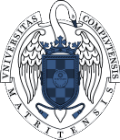![]() Research line coordinated by Ángeles Correas.
Research line coordinated by Ángeles Correas.
Binge drinking is an increasingly widespread drinking pattern among the adolescent population. This type of consumption involves the ingestion of large amounts of alcohol in short periods of time, quickly leading the body to a state of ethyl intoxication. In this regard, a large number of studies have demonstrated the detrimental effects of this type of consumption on the functional and anatomical integrity of the brain in young consumers. However, in the last decade, the possible existence of neurobiological and cognitive factors predisposing to this type of consumption behavior has become evident, making certain individuals more vulnerable to developing future substance use disorders. In this context, the aim of our laboratory is to explore those neurophysiological and neurocognitive factors that may be predisposing for the onset of future substance use behaviors, and also to deepen in the brain alterations caused by binge drinking in adolescent population.
To achieve this objective, we focused our work on a longitudinal approach, obtaining measurements before and after the onset of drinking, and thus, characterizing both the potential predisposing profiles and the alterations derived from consumption. Likewise, we use a complete magnetoencephalography system to characterize the brain electrophysiological activity profiles, using pioneering analysis approaches for this problem, such as functional connectivity methods.

